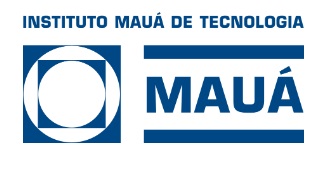Instituto Maua de Tecnologia

Strengths
Instituto Mauá de Tecnologia (IMT) is a private, non-profit organization.
Founded on December 11, 1961 in São Paulo, Brazil, ITM has a Centro Universitário/University Center and a research and testing center on two different campuses: São Paulo and São Caetano do Sul.
Major, Academics
Classes are exclusively in Portuguese.
https://maua.br/en/international-relations/modules-taught-in-english-2024
Campus
Covering 130,000 square meters, the São Caetano do Sul campus is located at 1 Praça Mauá – around 12 kilometers from downtown São Paulo – and is home to the university and research center.
The São Paulo campus also offers several graduate programs in business and project management, and engineering.
Students have access to spaces for social activities in the Academic Centers, sports activities in the Sports and Physical Activities Center, such as the Academic Athletic Association, as well as activities in Junior Entreprises for an introduction to professional and entrepreneurial practice.
Activities at ITM include tennis lessons for beginners, intermediates and advanced players, yoga, Pilates and swimming.
A campus cafeteria provides meals for a large number of students.
In addition, the campus houses 3 snack bars for refreshments.
To discover
Located in the São Paulo metropolitan region, São Caetano do Sul combines one of Brazil’s best quality of life indicators with a prime location, just minutes from the capital and the city of São Paulo (12 km away).
The city, which is also an important industrial center in Brazil, has a good infrastructure and is linked to São Paulo by bus and train.
There are several parks to visit: the Espaço Verde Chico Mendes, with seven multi-sports fields (futsal, basketball, handball and volleyball), a playground, jogging tracks, checkers, chess and table tennis tables, kiosks, a snack bar and a café, the Parque Municipal São José and the Parque Catarina Scarparo D’Agostini.
Nearby is São Paulo, the capital of the state of São Paulo and South America’s leading financial, commercial and business center. Meticulously designed by many nationalities, cultures and beliefs, this great metropolis is truly cosmopolitan, by vocation or by adoption. It’s Italian, German, Jewish, Portuguese, Japanese, Chinese, French, African, Arabic, Spanish, Latin, Brazilian and local. These characteristics and many others are present in the architecture of the buildings, in the streets, in the refined tastes of the gastronomy, in the customs and manners of a people who never stop.
Good to know
The cost of living in Brazil is quite reasonable, with €400/month enough to pay your rent and feed you every day.
While Portuguese is the official language, English is the first foreign language spoken in Brazil. Spanish is generally understood by the Brazilian population. And French is still spoken by just under 600,000 people!
Relaxed, informal, emotional, tactile and particularly expressive… the inhabitants of this vast Latin American country are also reputed to be optimistic, passionate and forward-looking. At the heart of Brazilian business, relationships and conviviality are part of the group spirit, and you’ll need to make time for them. Since Brazilians have an elastic relationship with their environment, delays are accepted and the pace is human-friendly. It’s about getting along, rather than the result: Brazilians generally don’t like confrontation and may find it hard to say “no” to you.
What's going on?
https://www.world-newspapers.com/countries/south-america/brazil
This information is provided as a guide.
Please visit the partner university’s website to have exact updated information.
Eligibility
ICD PGE
ICD BBD
Documents required
Resume in English
Grades transcript
ID Document
Cover letter in English
Planning
AUTUMN
Orientation: few days before lectures start
Lectures start : February
End of courses and exams: June
SPRING
Orientation: few days before lectures start
Courses start: August
End of courses and exams: November
Procedures
For stays of less than 90 days, you won’t need a visa.
If you are staying for a longer period, you will need to apply for a Vitem IX Brazil Visa.
Health insurance is also compulsory.
The Brazilian Ministry of Health and the WHO recommend that international tourists get vaccinated against yellow fever before arriving in the country.
It is recommended to get vaccinated at least 10 days before your trip.
Accommodation
The university will advise you on accommodation options.
https://maua.br/files/052018/manual-do-intercambista-281700.pdf

